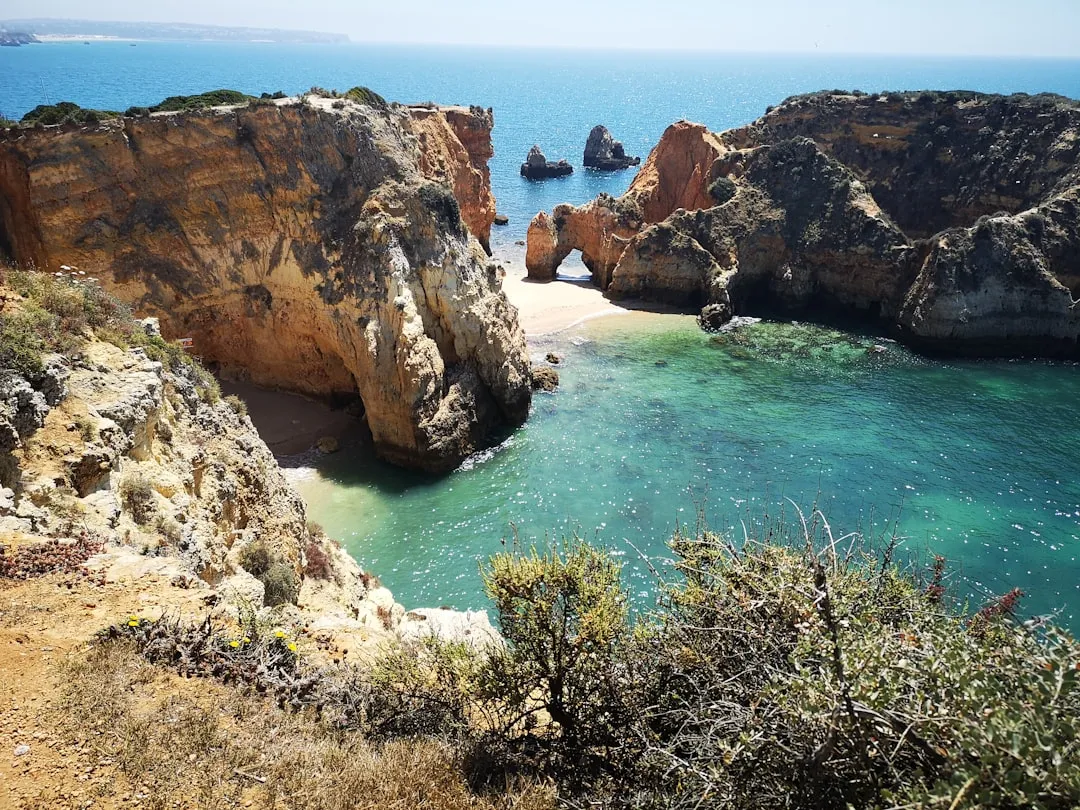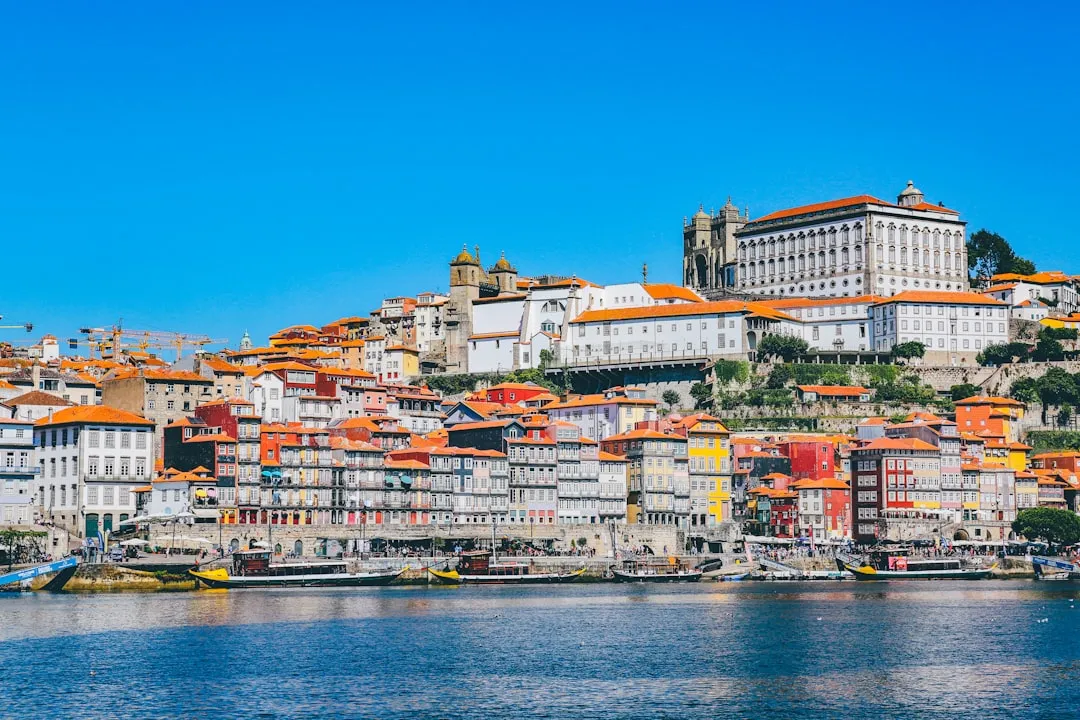1. Why Move to Portugal?
Portugal has become one of the most attractive destinations for expats, and it's easy to see why. With its laid-back lifestyle, stunning coastline, rich culture, and relatively affordable cost of living compared to other Western European countries, it offers a high quality of life for those looking to relocate.
Beyond the practical aspects, Portugal has a unique charm. Whether it’s enjoying a fresh seafood lunch by the Atlantic, catching a golden sunset over the ocean, or setting off on a road trip through the rolling hills of Alentejo, life here feels effortless. Add in a welcoming community, a strong digital nomad scene, and a growing economy, and Portugal becomes an obvious choice for many.
2. Best Places to Live in Portugal as an Expat
Lisbon: The Vibrant Capital
Lisbon is the heart of Portugal’s expat community, known for its colorful streets, historic neighborhoods, and buzzing atmosphere. It’s a great choice if you want a mix of modern city life and old-world charm. The tech industry is booming, co-working spaces are everywhere, and English is widely spoken. The downside? The cost of living has risen significantly in recent years, especially in the rental market.
Porto: The Laid-Back Alternative
Porto offers a slower pace of life compared to Lisbon but still has plenty to offer. With its medieval streets, famous wine cellars, and stunning views over the Douro River, it’s a great choice for those who want an authentic Portuguese experience without the high costs of the capital. It’s also an emerging tech and startup hub, attracting remote workers and entrepreneurs.
Algarve: The Sun-Soaked Paradise
If your dream involves beachside living, the Algarve is the place to be. With 300+ days of sunshine per year, golden cliffs, and some of Europe’s best golf courses, it’s a top choice for retirees and expats seeking a relaxed lifestyle. While areas like Lagos and Albufeira are very touristy, towns like Tavira and Portimão offer a quieter expat-friendly atmosphere.
Alentejo: The Hidden Gem
For those looking for an escape from city life, Alentejo offers wide-open landscapes, charming whitewashed villages, and a deep connection to nature. It’s an excellent region for slow living, with affordable property prices, fantastic wine, and a strong sense of tradition. Weekends here are spent exploring medieval towns, tasting local olive oils, or heading to the coast for fresh seafood.
3. Cost of Living in Portugal
Portugal remains one of the most affordable countries in Western Europe, but costs vary significantly by region. Here’s a breakdown of common expenses:
- Rent:
- Lisbon: €1,200 - €2,500/month (1-bedroom in the city center)
- Porto: €900 - €1,500/month
- Algarve: €800 - €1,500/month
- Alentejo: €500 - €1,000/month
- Utilities: €100-€150/month (electricity, water, internet)
- Groceries: €250-€400/month for a single person
- Dining out:
- Casual meal: €10-€15
- Mid-range restaurant: €25-€40 for two
- Public transport pass: €40-€50/month
- Healthcare insurance: €50-€100/month (if opting for private healthcare)
While Lisbon and the Algarve have seen significant price increases due to tourism and foreign investment, smaller cities and inland regions remain budget-friendly.
4. Quality of Life and Lifestyle
Living in Portugal is about balance—enjoying work but knowing when to slow down and appreciate the simple things.
- The Ocean: Portugal’s coastline is a playground for surfers, sailors, and beach lovers. The Atlantic breeze keeps summers comfortable, and seafood is always fresh.
- Food & Wine: Expect long, leisurely meals with fresh fish, grilled sardines, octopus rice, and plenty of local wines.
- Weather: With mild winters and long, sunny summers, outdoor activities are a big part of life—whether it’s hiking in the Douro Valley, cycling along the coast, or exploring historic towns.
- Weekend Adventures: In just a few hours, you can drive from Lisbon to the Algarve’s beaches, take a train to Porto’s wine country, or escape to the quiet countryside of Alentejo.
5. Working in Portugal
Portugal has become a hotspot for remote workers and digital nomads, thanks to its affordable lifestyle and visa options.
- Job Market: Salaries are lower than in Northern Europe, with the average salary around €1,300/month. However, the tech, tourism, and renewable energy sectors are growing.
- Freelancing: Many expats work as freelancers or run online businesses, benefiting from Portugal’s NHR tax regime.
- Work Culture: The Portuguese value work-life balance, with long lunch breaks and a more relaxed approach to business.
6. Residency and Visas
Portugal offers several visa options for expats:
- Digital Nomad Visa: Ideal for remote workers earning at least €3,280/month.
- D7 Visa: Perfect for retirees or passive income earners (minimum €820/month).
- Golden Visa: Requires a €500,000 property investment (or lower in some regions) and offers a pathway to citizenship.
- Work Visa: Sponsored by a Portuguese employer.
7. Healthcare & Education
- Healthcare: Portugal has a high-quality public healthcare system, but private healthcare is affordable and widely used by expats.
- Education: Public schools are free, but international schools in Lisbon, Porto, and the Algarve are popular among expats.
8. Final Thoughts
Moving to Portugal is more than just relocating—it’s adopting a lifestyle that values good food, community, and a slower pace of life. Whether you’re drawn to the energy of Lisbon, the wine country of Porto, the endless beaches of the Algarve, or the quiet charm of Alentejo, Portugal has something to offer everyone.
With careful planning, the right visa, and a willingness to embrace the culture, you’ll quickly find yourself settling into the rhythm of life in this beautiful country.
FAQs
1. How much money do you need to be an expat in Portugal?
The cost of living in Portugal varies by city. In Lisbon, a single person may need around €1,500–€2,500 per month, while in smaller towns like those in Alentejo, €1,000–€1,500 can be enough. Rent is a major factor, with Lisbon and Porto being the most expensive.
2. Is Portugal a good place for expats to live?
Yes! Portugal offers a high quality of life, affordable cost of living compared to other Western European countries, great weather, and a friendly atmosphere. The country is safe, has good healthcare, and offers various visa options for expats.
3. Does Portugal have free healthcare?
Portugal has a public healthcare system (SNS - Serviço Nacional de Saúde) that provides low-cost medical care to residents, including expats with residency. However, many expats also opt for private healthcare, which offers shorter wait times and English-speaking doctors.
4. Can you live in Portugal on $2,000 a month?
Yes, you can live comfortably on $2,000 (around €1,850) per month, especially outside Lisbon or Porto. Even in Lisbon, careful budgeting can make it work, but in smaller cities or the countryside, this budget allows for a good quality of life.
5. Where do most American expats live in Portugal?
Popular destinations include:
- Lisbon – Best for city lovers and digital nomads.
- Porto – More affordable than Lisbon, with a vibrant cultural scene.
- Algarve – Famous for beaches and a large retired expat community.
- Cascais – A luxurious seaside town near Lisbon.
- Alentejo – An off-the-beaten-path region with affordable living and authentic Portuguese culture.
6. What are the disadvantages of living in Lisbon?
- High cost of rent compared to other Portuguese cities.
- Tourist crowds in peak season.
- Traffic congestion and limited parking.
- Bureaucracy can be frustrating when dealing with paperwork.
7. Do expats pay taxes in Portugal?
Yes, if you live in Portugal for more than 183 days per year, you become a tax resident. However, the Non-Habitual Resident (NHR) regime offers tax advantages for new residents, such as 10% tax on foreign pensions and possible exemptions on foreign income.
8. Can a US citizen buy a house in Portugal?
Yes, there are no restrictions on foreigners buying property in Portugal. Many expats purchase homes in Lisbon, Porto, and the Algarve. However, getting a mortgage as a non-resident may require a larger down payment.
9. Is it cheaper to live in Portugal or Spain?
Generally, Portugal is cheaper than Spain, especially in terms of rent, groceries, and dining out. However, salaries are also lower in Portugal, so it depends on your income source and lifestyle.
10. Will Portugal tax my US Social Security benefits?
Yes, Portugal taxes foreign income, including US Social Security benefits. However, under the Portugal-US tax treaty, there are ways to avoid double taxation, and NHR residents may benefit from lower tax rates on foreign pensions.




